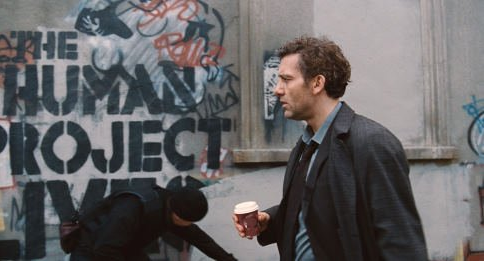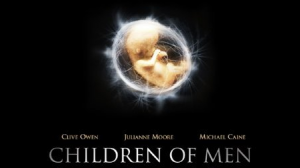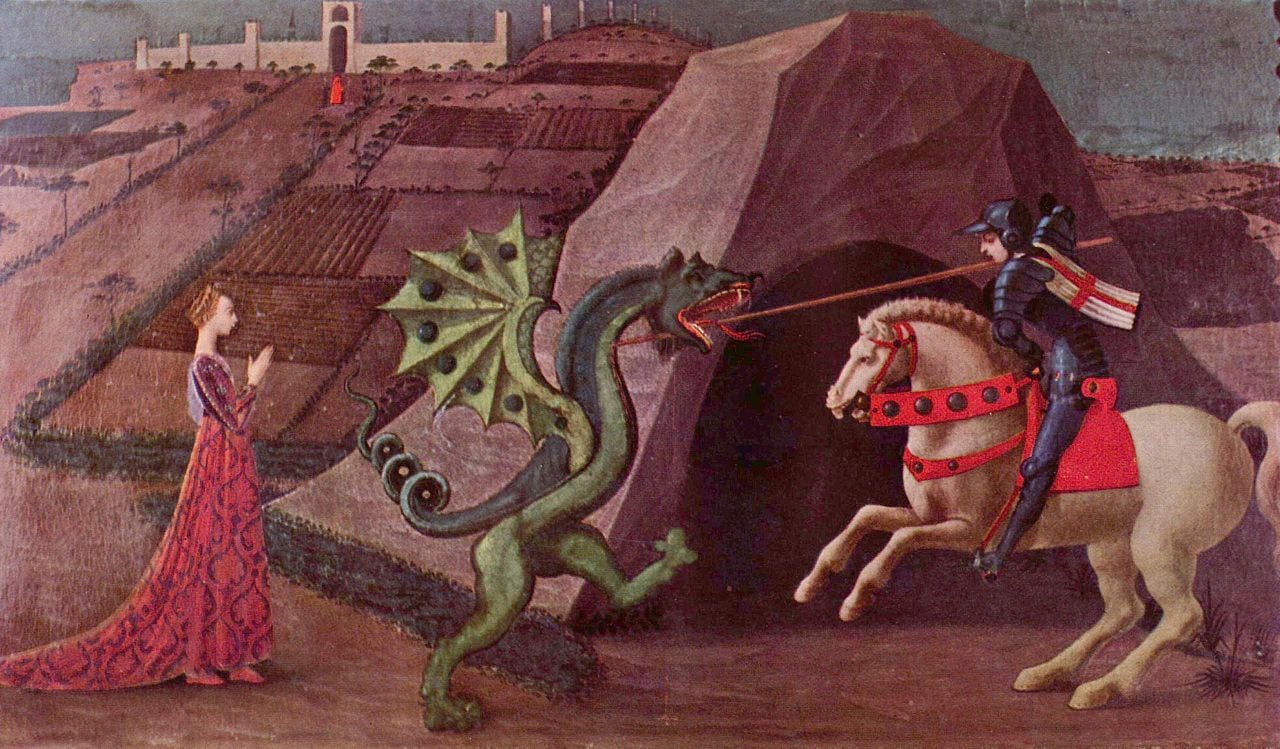[Editor’s Note: I’m delighted to feature a guest post by the man who has made the Theology of Body better known and loved throughout the world. Here’s a good reminder that sex and babies are related—just in time for Valentine’s Day (and Fifty Shades of Grey).]

Movies, like all forms of art, reveal something of the human soul. They can be a kind of confession. Our sins, our fears, our inner contradictions, our worst nightmares – all the kinds of things that people don’t talk about in “polite” conversation – often find an outlet, consciously or unconsciously, on the big screen.
The movie Children of Men seems to offer just such a “confession.” It taps into the inevitable psychological disturbance that stems from our culture’s widespread disregard for new life and the seemingly omnipresent preference for sterilized sex. Having sex: nothing better; having babies: nothing worse. Doesn’t this pretty much sum up the way much of our culture thinks today? The schizophrenia inherent in such a blatant bucking of reality is bound to cause major brain spasms. And these major brains spasms can turn into a major motion picture like this one.
In twenty years, women are infertile.
No children. No future. No hope.
But all that can change in a heartbeat.

That’s the caption that appears above a small human life pictured in-utero on the promotional poster for Children of Men. The poster alone is a powerful promotion of life from the mainstream entertainment industry. And the movie is all the more so.
Clive Owen, who plays the reluctant hero Theo, observed in an interview: “The film is looking at the way we’re heading and saying, ‘We should be careful.’” We should be careful, indeed: careful to examine what children give the world and why so many people prefer to avoid them.
In one of the more chilling scenes of the film, Theo and another woman find themselves in a long-abandoned elementary school. The building is in shambles. The playground is overgrown. Only slowly does it dawn on the viewer – the school is falling apart because there are no children in school, and there are no children in school because there are no children! In the midst of this bleakness, the woman laments to Theo, “It’s very odd what happens in the world without children’s voices.”
Odd – and horrific. The entire world has gone berserk. Governments have collapsed. Anarchy reigns. Terrorists rule. Humanity’s only hope is revealed when a young African woman named Kee is discovered to be pregnant. Having never seen a pregnant woman before, she had no reference for what was happening within her. But, as she says, she “just knew” there was new life inside.
When Michael Caine’s character meets Kee he proclaims, “Your baby is the miracle the whole world has been waiting for.” The messianic tones couldn’t be clearer (the movie was actually released on Christmas day, 2006: coincidence?). In the midst of a dark and despairing story, when Kee finally gives birth, her child fills the viewer with hope. Still, the story leaves many questions unanswered.
“I didn’t want to give any answers,” says director Alfonso Cuarón. “I wanted to force the audience to explore what they think is really happening [in our world] right now, bringing out not only the social responsibility but the individual’s responsibility … I wanted to explore the fading sense of hope in humanity today,” Cuarón reports. “The child serves as a message of hope and [our willful] infertility shows the little respect we have for human life right now.” Cuarón then concluded, “I believe that children are the only hope for humanity, their sense of innocence, their sense of faith …”
This message comes through beautifully when Kee’s crying newborn stops the fighting in the streets. Hardened soldiers, many of whom would never have seen or heard a crying baby, fall to their knees in adoration and amazement. One of them blesses himself with the sign of the cross. History has changed “in a heartbeat.” And Hollywood has given us something critically important to think about.
***
Christopher West is the author of several books on St. John Paul II’s Theology of the Body and lectures globally on the subject. You can receive ongoing formation from him by joining the Cor Project (corproject.com).
***
Also, I gave a similar treatment to another Alfonso Cuarón movie: “Mission Abort: A Way of Interpreting Gravity“













